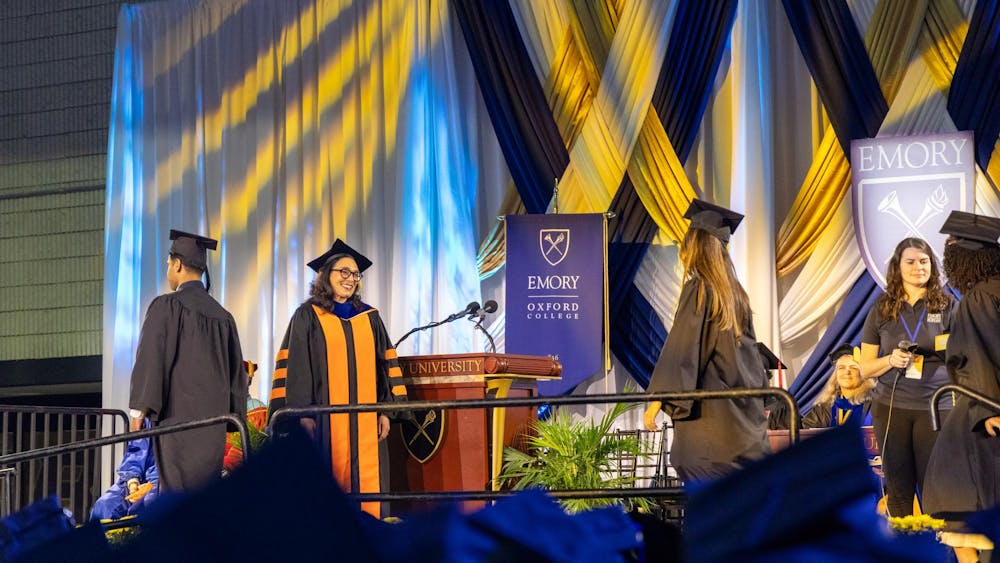Emory University raised more than $1.69 billion through Campaign Emory, a seven-year fundraising effort that was publicly announced in September 2008. The campaign sought to reach a fundraising goal of $1.6 billion by Dec. 31, 2012.
The top gainers in the campaign were research – which received 27 percent with $470 million – and capital projects – which received 23.6 percent with $400 million. Of all the donations, 94.1 percent were allocated throughout the University based on donor intent, according to Vice President of Development and Alumni Relations Susan Cruse. She added that the funding raised through the campaign was significantly more than the amount raised in non-campaign years.
More than 150,000 donors contributed to the campaign. Of the money raised, $349 million were from Emory alumni, and $105 million were from Emory faculty and staff.
University President James W. Wagner said in an interview with the Wheel that although he was overjoyed by the overall success of the campaign he had hoped for better results in a few specific campaign targets.
"If there was one area of that I wish we would have been able to interest more donors, it is in the area of scholarships and fellowships, so we will continue aggressively to try to raise funds in those areas," Wagner said.
Hundreds of individuals donated their time and effort to the campaign but according to Wagner, a few individual efforts stood out.
"[Cruse] moved us into modern campaign mode," Wagner said, adding that, under the direction of Cruse, fundraising at Emory took a major leap toward professionalizing fundraising activities.
"[The] campaign communicated urgency to address unique institutional opportunities and challenges, exciting donor interest and commitment," Cruse, who created an executive plan to help achieve the campaign's goal, wrote in an email. "It provided a framework for collaboration between institutional leaders, faculty, staff and donors to build a culture of philanthropy."
The campaign followed a strategic planning process in which each Dean and director of individual branches of Emory – such as the Michael C. Carlos Museum and Office of Campus Life – coupled their strategic plans towards philanthropic needs, according to Wagner. He also said that the specific branches of Emory each constructed their own case that assisted potential donors in identifying the areas of need.
Prior to the launch of the campaign, Sonny Deriso, a 1968 graduate of Emory College and a 1972 graduate of Emory University School of Law, accepted Wagner's offer to volunteer as the campaign chairman. Wagner stated in a University press release that, "the Emory community owes a debt of gratitude to Sonny Deriso."
Deriso said in an interview with the Wheel that the campaign is particularly remarkable because it was publicly announced when the nation was at the beginning of an economic downturn.
"We could not have made the announcement at a worse time," Deriso said. "We decided we needed to press on. Fortunately, many people decided to invest with Emory."
Deriso added that, even though a campaign consultant informed him that the campaign would only be able to raise $1.4 billion at most, Emory had a greater need at the time so the University set the goal at $1.6 billion.
Universities are among the institutions that people still have a large degree of trust in, said Wagner. He added that, "Universities remain one of the organizations where people feel that their money is going specifically to do what they want it to do."
Wagner also said that he believes education and research can address many of the nation's current needs.
"If we don't live up to the expectations of our donors to do what we said we would do, I don't imagine we would expect to have great success in the future with philanthropy," Wagner said. "With all of this generosity from donors comes a sense of responsibility for Emory."
–Contact Dustin Slade at
dpslade@emory.edu
Read More
Trending







